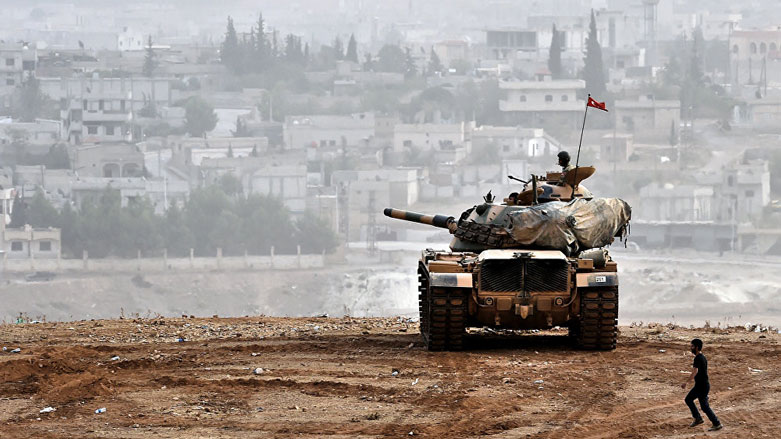Turkey says 70 more Kurdish targets hit in Syria

ERBIL, Kurdistan Region (Kurdistan24) – Turkish warplanes and artillery targeted 70 more Kurdish People’s Protection Units (YPG) with airstrikes and shelling in northwestern Syria overnight.
Citing a statement by the Turkish General Staff, the state-run Anadolu Agency said the ground and air forces also hit 52 Islamic State (IS) targets without specifying the number of airstrikes or shelling.
Turkey has been pounding Kurdish forces in the Afrin district of northern Aleppo since Wednesday in an attempt to deny them territorial expansion eastward to the IS-held city of al-Bab.
The YPG said on its website that Turkish attacks continued on its positions and villages throughout Thursday and Friday, and cost both military and civilian loss of life without giving a precise figure.
Additionally, Turkish media claimed 160 to 200 Kurdish fighters were killed in attacks.
US RESPONSE
A day after the attacks began, the US State Department labeled the Turkish targeting of Kurds as “uncoordinated movements” as Russian Minister of Foreign Affairs Sergei Lavrov later expressed concern.
State Department’s Spokesperson John Kirby urged the need to focus on fighting IS and told a Friday press briefing in Washington his country had no role in Turkey’s “uncoordinated activity” which was “counterproductive” to defeating IS.
“We believe that all military activities in this very crowded area must closely be coordinated,” Kirby continued.
“Uncoordinated military activity by any party or any group carries risks of escalation with innocent civilians caught in the middle,” he added.
Moreover, Kirby revealed he could not confirm the Turkish airstrikes on Kurdish villages and described them as “reported.”
When asked what the US response would be if the reports were true, Kirby said he was “not going to speculate about hypotheticals.”
Editing by Karzan Sulaivany
(Laurie Mylroie contributed to this report from Washington, DC)
